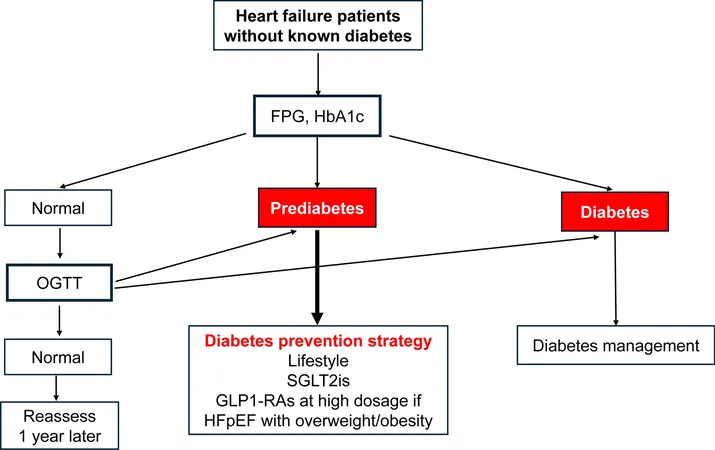
ESC's 2024 Guidelines for Chronic Coronary Syndromes: A Game-Changer in Heart Health
2024-09-17
LONDON, England — The European Society of Cardiology (ESC) has unveiled revolutionary new guidelines for the management of chronic coronary syndromes (CCS), potentially transforming the way healthcare professionals approach patient treatment and care.
Unveiled during the ESC Congress 2024 and published in the prestigious European Heart Journal, this comprehensive 123-page document, developed under the leadership of experts Christiaan Vrints, MD, PhD, from the University of Antwerp, and Felicita Andreotti, MD, PhD, from Fondazione Policlinico Universitario Gemelli in Rome, integrates and modernizes previous guidelines from 2018 and 2019.
One of the most significant updates is the redefinition of chronic coronary syndromes, which now encompasses a broader range of clinical presentations that arise from structural or functional alterations in the coronary arteries. This includes asymptomatic patients, those with angina, and individuals experiencing heart failure linked to ischemia.
A Paradigm Shift in Understanding
The ESC guidelines reflect ongoing advancements in the understanding of myocardial ischemia, acknowledging that the pathophysiology of CCS is complex and multi-dimensional. "We've moved from a simplistic view of myocardial ischemia to recognizing a more intricate interplay of factors," Vrints stated at the launch.
With the endorsement of the European Association for Cardio-Thoracic Surgery (EACTS), the guidelines also put to rest longstanding debates over revascularization strategies for patients with left main coronary artery disease (CAD). After years of discussions, there's newfound consensus on treatment approaches, much to the relief of the medical community.
Key Highlights: Revascularization Recommendations
The guidelines recommend coronary artery bypass grafting (CABG) as the preferred method over medical management in CCS patients with significant left main coronary stenosis to enhance survival rates (Class I, Level of Evidence A). In contrast, percutaneous coronary intervention (PCI) is advocated as an alternative for select patients with low SYNTAX scores, emphasizing a patient-centered approach to treatment.
"The new recommendations signify a systematic re-evaluation of the evidence and a move towards integrating evolving research findings," noted Milan Milojevic, MD, PhD. The recommendations emphasize the importance of complete revascularization and the establishment of heart teams to facilitate informed decision-making.
Embracing Microvascular Dysfunction
Significantly, the new guidelines recognize the role of coronary microvascular dysfunction, acknowledging that symptoms can manifest in the absence of traditional obstructive disease. This recognition marks a broader understanding of CCS, recognizing that patient experiences are shaped by more than just obvious anatomical abnormalities.
Moreover, an innovative diagnostic protocol is introduced, guiding physicians to assess obstructive CAD's likelihood before conducting further investigations, thus streamlining patient evaluation processes.
Guidelines Enriching Patient Care
In line with this holistic approach, the guidelines diverge from U.S. recommendations concerning multivessel coronary disease treatment. While U.S. guidelines have downplayed the role of CABG, the ESC maintains its importance based on robust evidence supporting enhanced survival rates through surgical interventions in appropriate candidates.
These groundbreaking guidelines also cover angina management, antithrombotic therapy after PCI, and long-term lipid management, emphasizing the need for high-intensity statins and the potential use of novel therapies, including SGLT2 inhibitors for patients with type 2 diabetes.
Conclusion
The 2024 ESC guidelines not only blaze a trail for evolving patient management in chronic coronary syndromes but also signify a shift toward a more inclusive, evidence-based approach to cardiac care. With guidelines grounded in extensive research and expert consensus, the future of cardiac healthcare looks promising, aiming to enhance patient outcomes and overall quality of life.
As cardiologists and surgeons absorb these revolutionary recommendations, the call for patient-centered care and interdisciplinary collaboration has never been more vital in driving forward the standards of heart health management.



 Brasil (PT)
Brasil (PT)
 Canada (EN)
Canada (EN)
 Chile (ES)
Chile (ES)
 España (ES)
España (ES)
 France (FR)
France (FR)
 Hong Kong (EN)
Hong Kong (EN)
 Italia (IT)
Italia (IT)
 日本 (JA)
日本 (JA)
 Magyarország (HU)
Magyarország (HU)
 Norge (NO)
Norge (NO)
 Polska (PL)
Polska (PL)
 Schweiz (DE)
Schweiz (DE)
 Singapore (EN)
Singapore (EN)
 Sverige (SV)
Sverige (SV)
 Suomi (FI)
Suomi (FI)
 Türkiye (TR)
Türkiye (TR)